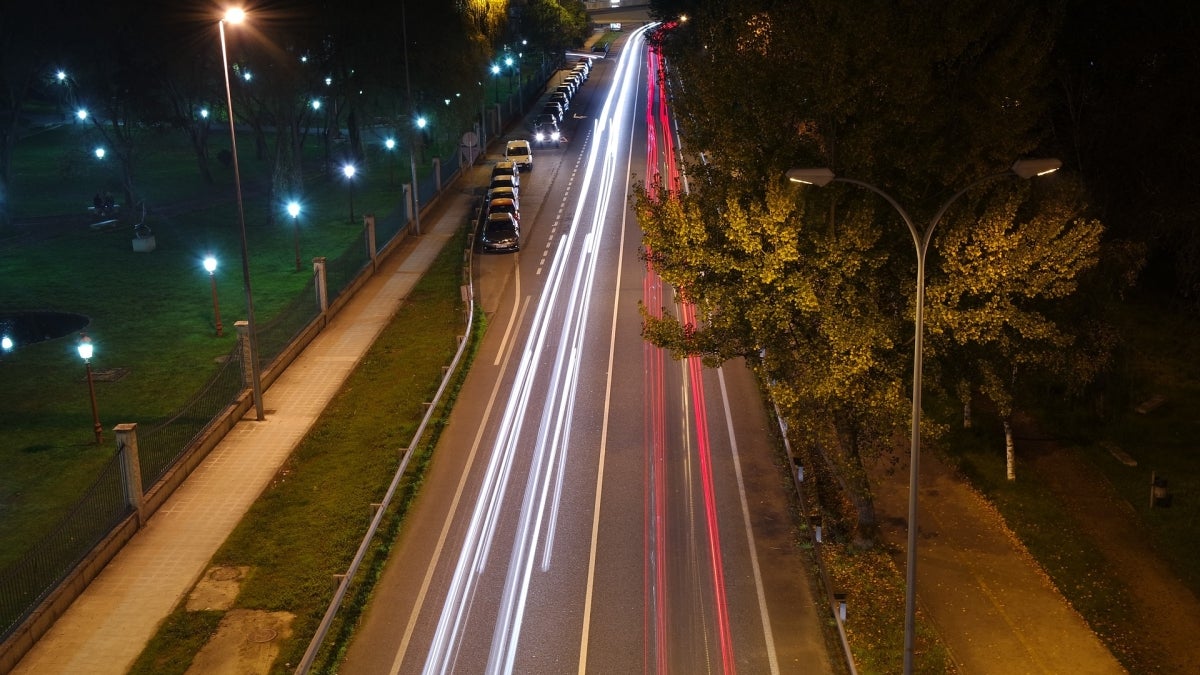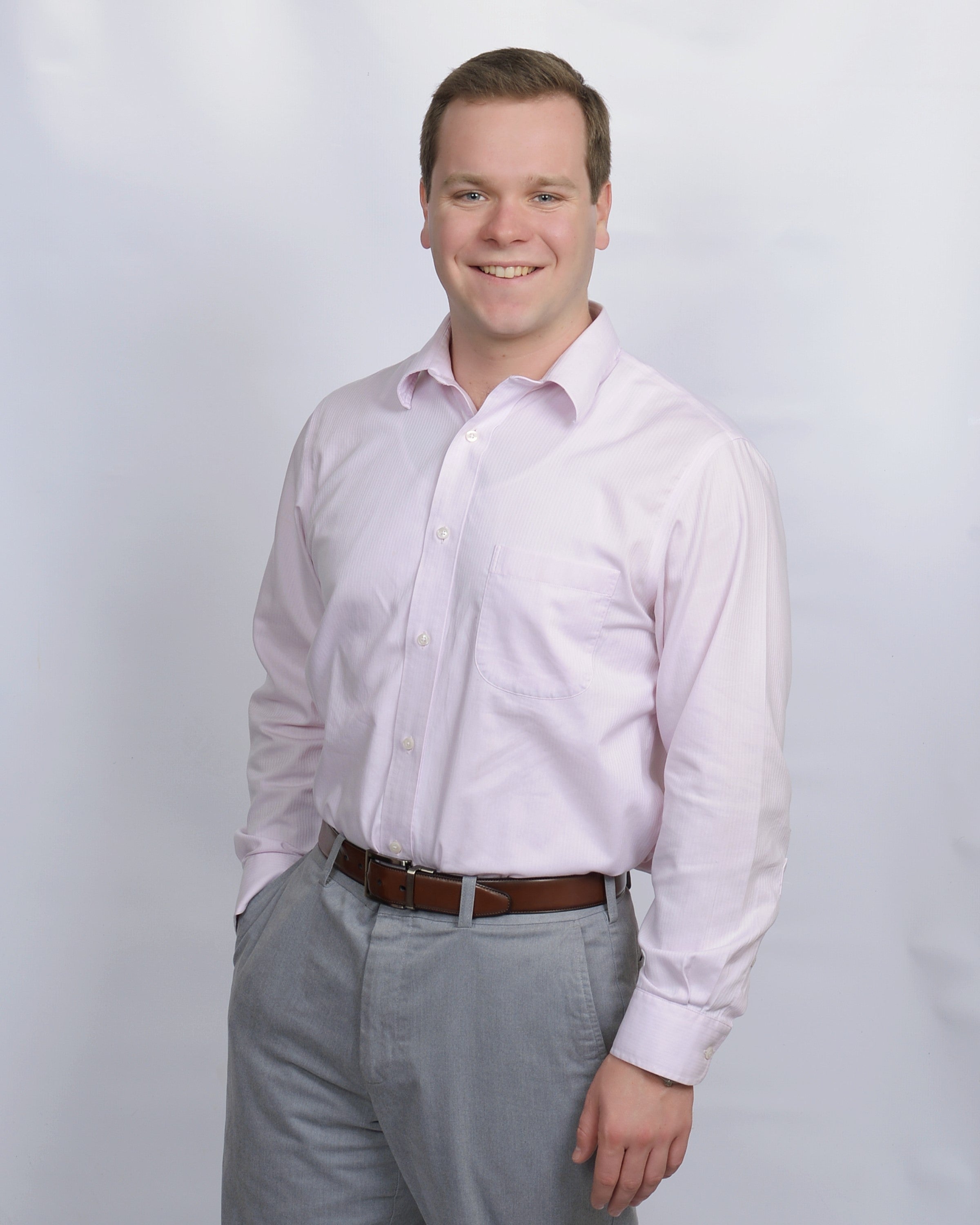ASU's first online graduate in sustainability engineering helps his town see the light

Editor’s note: This is part of a series of profiles for fall 2018 commencement. Read about more graduates.
Patrick Murphy was able to pursue his master’s degree at Arizona State University while also helping his hometown to be more sustainable.
Murphy is the first person to earn the ASU Online Master of Science in Engineering degree in sustainability engineering, a program that started in 2016.
The degree requires a six-credit capstone project, and Murphy performed a sustainability analysis for the village of Mokena, Illinois, where he’s from, to determine whether it should convert its street lighting system from conventional bulbs to LED bulbs.
Patrick Murphy is the first graduate of the ASU Online sustainability engineering master's program.
“By talking with the village, I gauged what aspects mattered more to them in consideration of this change in comparison with others,” he said.
Murphy worked with the officials on the following aspects: cost of transition, energy savings, environmental impact, life-cycle analysis of the lighting system, road safety impact, crime rate impact, auxiliary technology to be incorporated, the methodology of transition and the impact of change on a large scale.
“According to my research, the village would end up saving money and reducing emissions without impacting the safety of its citizens by making the change to LED bulbs,” said Murphy, who received his bachelor’s degree in civil engineering from Purdue University. He was working in the field of utility infrastructure and land development for a company in Dallas when he started his degree program.
Murphy answered some questions from ASU Now:
Question: What was your “aha” moment, when you realized you wanted to study sustainability?
Answer: I was in the final semester of my undergraduate degree, and I took an "environmental sustainability" class. The class provided the basic overview and concepts of sustainability, and I fell in love with the subject matter. Sustainability requires a different way of viewing a problem, and this introductory course introduced this problem-solving methodology to me. It considers a problem from an overall impact perspective rather than the immediate technical solution that engineers are accustomed to.
Q: Why did you decide to pursue the ASU Online master’s program?
A: After I finished my undergraduate degree I knew that I wanted to pursue a sustainability master's degree. ASU was my first choice due to their innovation in education and their commitment to sustainability. The online program allowed me to be flexible with my career choices while still pursuing the world-class education that I wanted. ASU gave me the opportunity to pursue my passion for sustainability while advancing in my career. This combination made choosing ASU a no-brainer.
Q: What was your favorite part of the program?
A: The best part of the program was learning from the ASU staff. The professors that I worked under have all contributed to the emerging field of sustainability, and it was important for me to learn directly from some of the "pioneers" of the field, especially as the first graduate from the online program. The staff was very helpful, and they allowed me to customize my degree so I could pursue of my interests within sustainability.
Q: What’s something you learned in your master’s program that changed your perspective?
A: Too often people tend to think in absolutes, and in sustainability it is important to stay away from these preconceived notions. As an example, it is way too easy to assume that a renewable electricity generation source is better than a nonrenewable source because it is "green." No electricity generation source is without its negative environmental impacts, and there is more to consider than just environmental impact when choosing a source for electricity. In developing countries, a nonrenewable source may be a temporary solution since it could provide a more affordable option to provide energy and to lift the local people out of poverty. This mindset can be and should be applied with any decision.
Q: What advice would you give to those still in school?
A: Learning doesn't end when school ends. Keep learning and improving yourself. Just because school may be ending soon, doesn't mean you should stop investing in yourself and your education.
Q: What are your plans after graduation?
A: I recently started a job with a renewable energy company in Chicago as a civil engineer and construction estimator. I plan to use my education to implement sustainability decision making to my engineering solutions for the wind farms and photovoltaic plants I help design.
Q: If someone gave you $40 million to solve one problem on our planet, what would you tackle?
A: With $40 million, I would invest in sustainability education. It is not enough money to physically change or eradicate any problems in the world, but it is enough to educate mass amounts of people on sustainability issues. Education has a lasting impact on a population, and widespread sustainability education could have lasting improvements on our society and its relationship with the planet. Educating the masses would hopefully encourage people to make the changes and solve the problems in our world on their own.
Top image from Pixabay.
More Science and technology

Pioneering professor of cultural evolution pens essays for leading academic journals
When Robert Boyd wrote his 1985 book “Culture and the Evolutionary Process,” cultural evolution was not considered a true scientific topic. But over the past half-century, human culture and cultural…

Lucy's lasting legacy: Donald Johanson reflects on the discovery of a lifetime
Fifty years ago, in the dusty hills of Hadar, Ethiopia, a young paleoanthropologist, Donald Johanson, discovered what would become one of the most famous fossil skeletons of our lifetime — the 3.2…

ASU and Deca Technologies selected to lead $100M SHIELD USA project to strengthen U.S. semiconductor packaging capabilities
The National Institute of Standards and Technology — part of the U.S. Department of Commerce — announced today that it plans to award as much as $100 million to Arizona State University and Deca…
